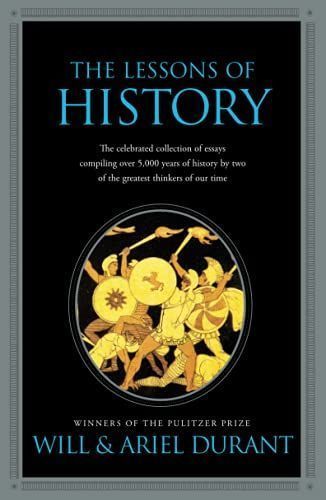
The Lessons of History
A concise survey of the culture and civilization of mankind, The Lessons of History is the result of a lifetime of research from Pulitzer Prize–winning historians Will and Ariel Durant. With their accessible compendium of philosophy and social progress, the Durants take us on a journey through history, exploring the possibilities and limitations of humanity over time. Juxtaposing the great lives, ideas, and accomplishments with cycles of war and conquest, the Durants reveal the towering themes of history and give meaning to our own.
Reviews
Timeo Williams@timeowilliams
rumbledethumps@rumbledethumps
Matthew Royal@masyukun
Bailey Jennings@baileyjennings
Gordy@gortron
Jeffrey Jose@jeffjose
Alan@alancph
Tomaz Stolfa@tomazstolfa
ian alas@ian
Konstantin Münster@konstantin
Jacob Medure@jacobs_blue
Pablo Porto@pabloreads
Kumar Puspesh@puspesh
Todd Prauner@tuddball
Róbert Istók@robertistok
Morgan Holland@morgz
Dylan Garrett@dygar
Louie Dinh@ld
Gaurav Verma@gaurav99
Tomaz Stolfa@tomazstolfa
Danté@dantenel
Vikram Sreekanti@vikrams
Jon Noronha@thatsjonsense
Frank White@fwfl850